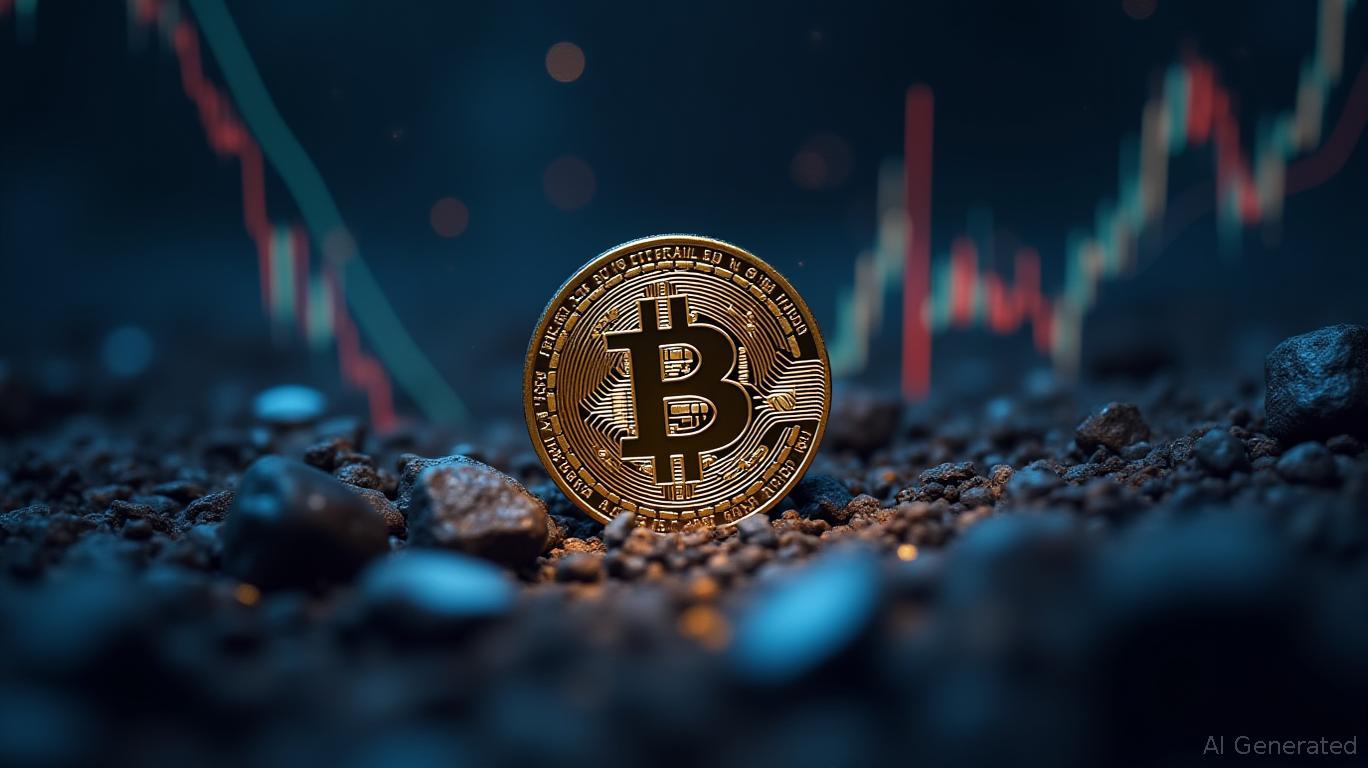Bitcoin Updates: Companies Balancing Innovation and Risk with Bitcoin Investments
- Sequans Communications sold 970 BTC to cut debt, marking first public treasury divestment amid Bitcoin's four-month low. - Stock dropped 13% post-announcement, highlighting crypto volatility risks and accounting challenges under GAAP impairment rules. - U.S. Treasury sanctioned North Korean crypto launderers linked to $3B heist, intensifying global regulatory scrutiny of corporate holdings. - SEC delays crypto insider trading probe due to government shutdown, raising compliance concerns over pre-announce
Recent volatility in the cryptocurrency sector has drawn attention to the expanding influence of digital assets within corporate treasuries, as businesses weigh both strategic benefits and escalating risks.

This decision carries wider consequences. Following the disclosure, Sequans’ shares fell by 13%, adding to an 82% decline since the start of the year. CEO Georges Karam reiterated the firm’s “strong belief in Bitcoin,” describing the sale as a strategic move to restructure its debt. However, the deal also exposes the difficulties of accounting for cryptocurrencies under existing rules, which require impairment losses when market prices fall below book value—potentially skewing financial reports, as noted by FinancialContent.
Regulatory oversight of corporate crypto assets is also ramping up. The U.S. Treasury recently imposed sanctions on eight North Korean bankers and two organizations for laundering stolen cryptocurrency—part of a $3 billion international theft—to support North Korea’s weapons initiatives, according to a
At the same time, the Securities and Exchange Commission (SEC) has experienced setbacks in its investigation into whether companies with crypto holdings breached insider trading regulations. The inquiry has been put on hold due to a government shutdown, but former SEC attorneys anticipate that subpoenas may be issued once activities resume. The investigation centers on unusual trading activity prior to public announcements about corporate crypto assets, raising concerns about adherence to Regulation Fair Disclosure, according to a
Despite these obstacles, more corporations are integrating Bitcoin into their treasuries. Currently, over 178 publicly listed firms collectively possess more than 1 million
Industry analysts warn that the intersection of digital currencies and corporate finance remains highly volatile and subject to regulatory ambiguity. While digital assets can provide diversification and a hedge against inflation, their classification under GAAP as indefinite-lived intangible assets can distort accounting outcomes. Furthermore, stablecoins continue to pose risks, as gaps in anti-money laundering (AML) protocols allow illicit transactions through unhosted wallets and decentralized systems, as outlined in a
The trajectory of corporate crypto strategies will likely depend on the evolution of accounting guidelines, clearer regulations, and improved technological protections. As demonstrated by Sequans’ example, strategic asset sales may become more prevalent during market slumps. Nevertheless, the increasing use of digital assets in corporate treasuries marks a transformation in financial management, blending innovation with prudence in a rapidly digitalizing economy.
Disclaimer: The content of this article solely reflects the author's opinion and does not represent the platform in any capacity. This article is not intended to serve as a reference for making investment decisions.
You may also like
XRP News Today: Ripple Injects $500M to Advance 'Internet of Value' Ambition, Reaching $40B Valuation
- Ripple secures $500M funding at $40B valuation, led by Fortress and Citadel, boosting institutional confidence in its blockchain and stablecoin solutions. - RLUSD stablecoin reaches $1B market cap, powers $95B+ cross-border payments, and expands institutional services via Ripple Prime's collateral management. - Strategic acquisitions and Mastercard-Gemini partnership using RLUSD on XRP Ledger aim to redefine instant settlement and bridge blockchain with traditional finance. - Ripple's valuation growth to

Industries Drive Machine Independence, Yet Human Collaboration Remains Essential
- Thermo Fisher expands cell therapy automation in NJ, cutting lead times 40% and achieving 99.8% batch consistency via AI and closed-system tech. - Mimic Robotics raises $16M for AI-driven dexterous hands that replicate skilled labor, addressing manufacturing labor shortages through wearable sensor data. - Foxconn deploys humanoid robots for AI server production in Texas, while CVTE showcases commercial robots at Canton Fair with APAC/EU partnerships. - Schaeffler partners with Neura Robotics to integrate

Solana News Update: Grayscale Reduces GSOL Fees and Increases Staking Incentives in Response to Bitcoin ETF Withdrawals
- Grayscale waives GSOL management fees and cuts staking fees for 3 months or until $1B AUM, boosting investor returns. - GSOL offers 7.23% gross staking rewards (6.60% net) to compete in crypto ETF market amid Bitcoin fund outflows. - Strategic shift diversifies Grayscale's offerings beyond Bitcoin, leveraging Solana's institutional appeal and low-cost structure. - Unregistered fund structure and staking risks like liquidity constraints remain concerns despite real-time reward transparency.

Bitcoin News Today: "Major Institutions Bolster Bitcoin’s $100K Support Amid Growing Bearish Sentiment"
- Bitcoin struggles to hold above $100,000 as price dips below $109,500, triggering sell orders and testing critical support zones. - Analysts split between viewing the correction as temporary or a deeper bearish shift, with Plan B's model projecting $250,000–$1M fair value. - Institutional buying dominates amid $797M ETF outflows, while Fed hawkishness and whale transfers fuel sell-off speculation. - Bullish arguments cite structural support and ETF accumulation, but bearish indicators include rising exch
